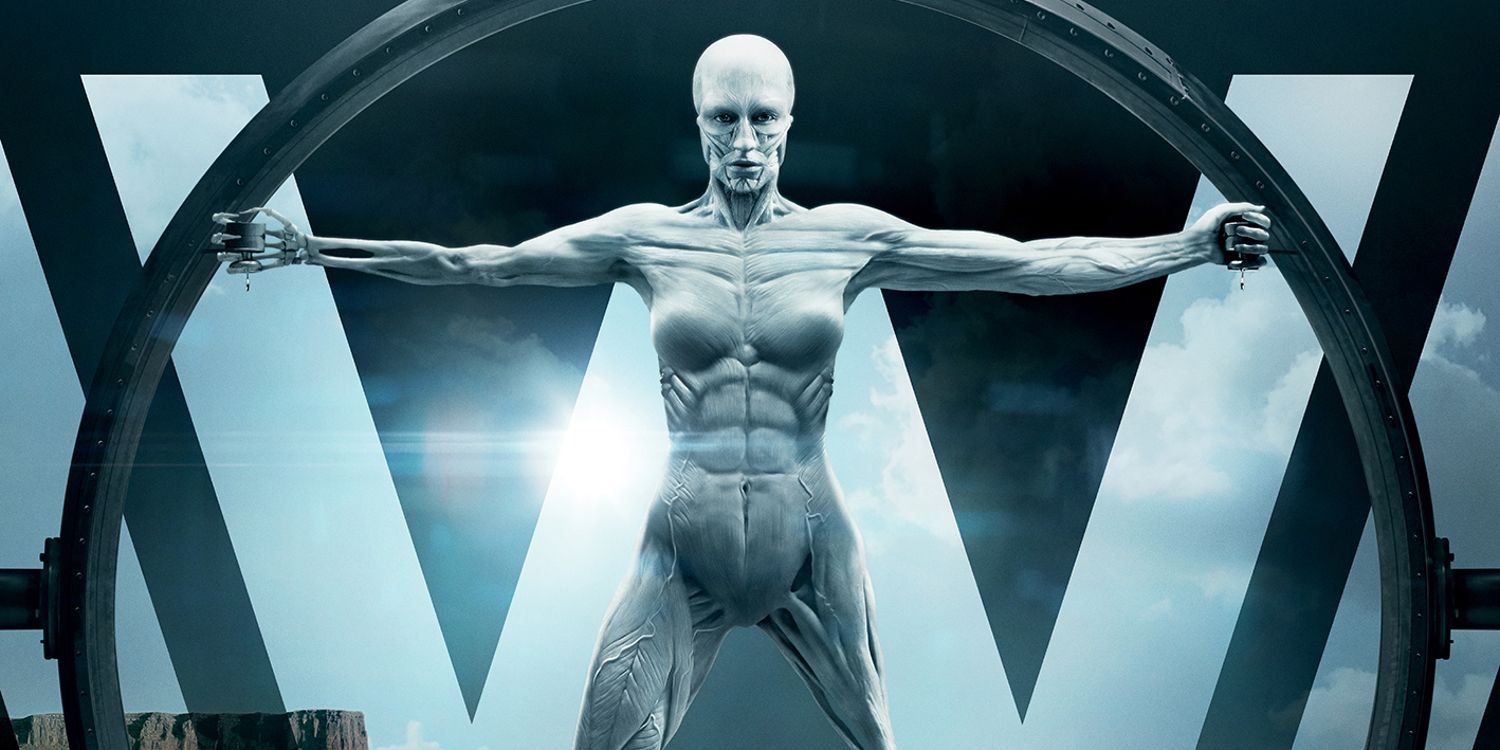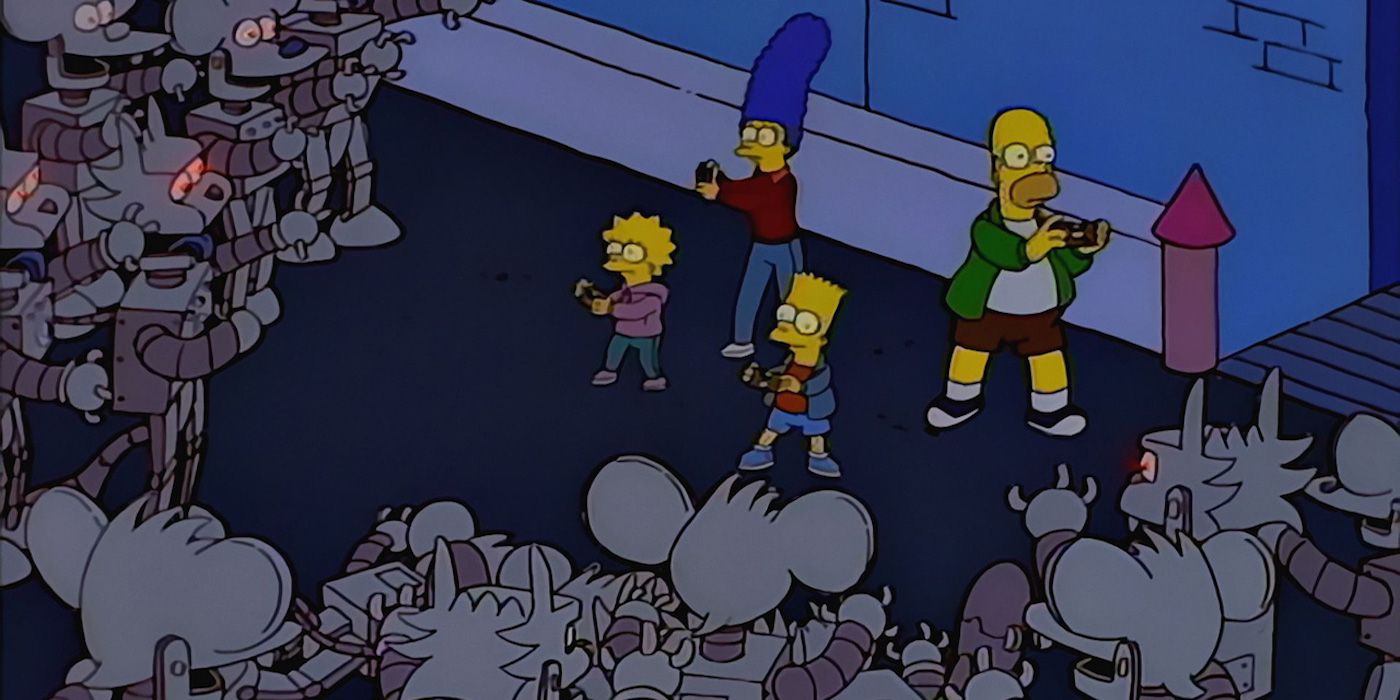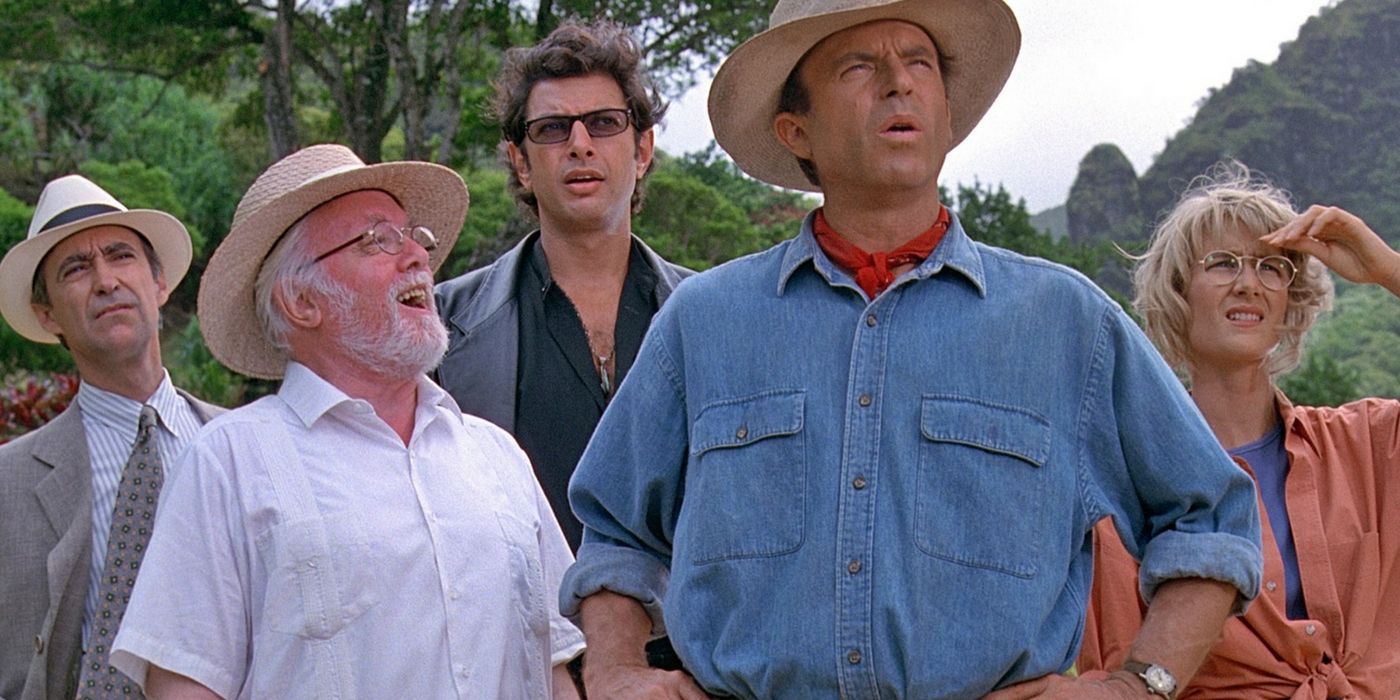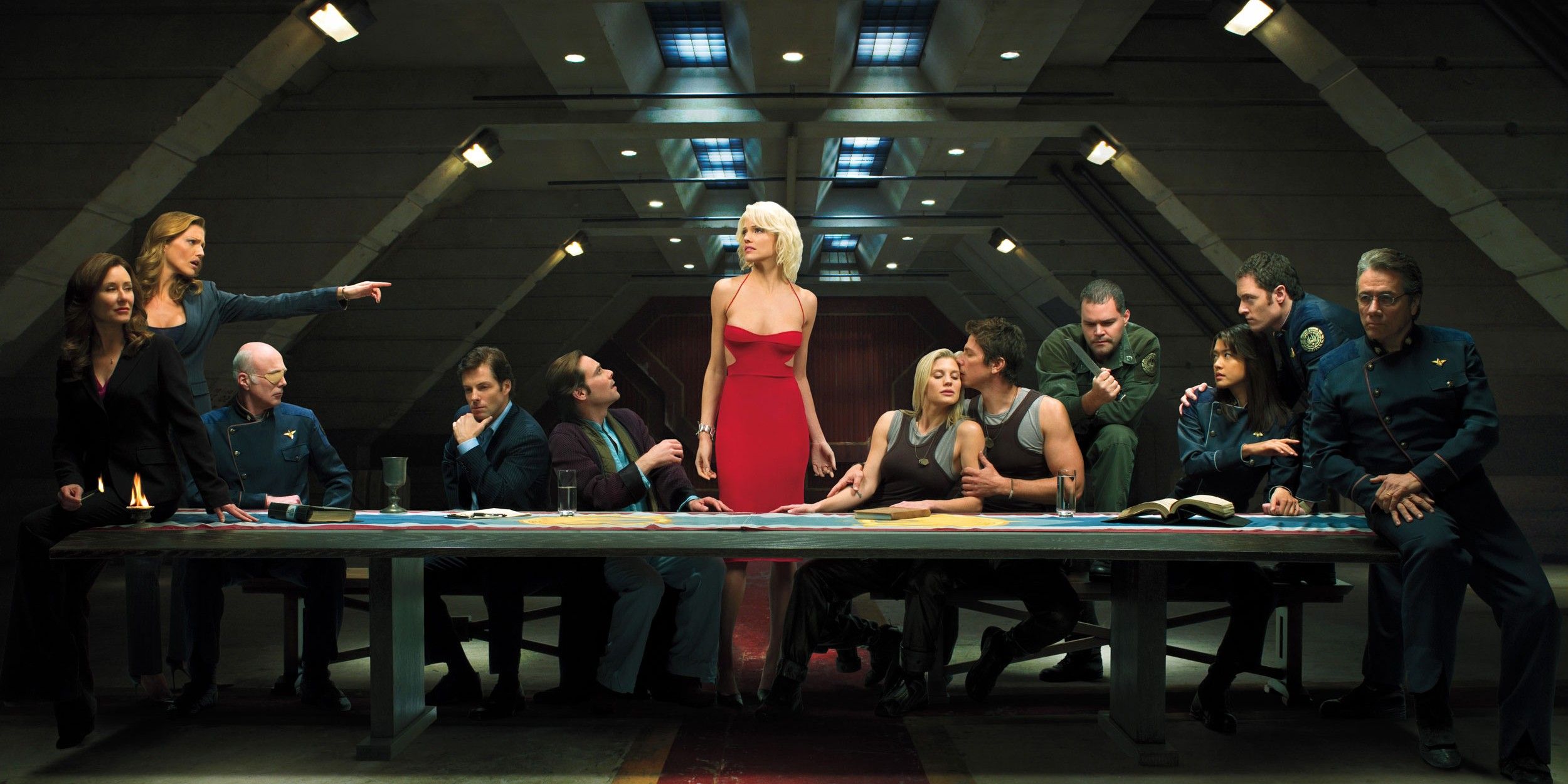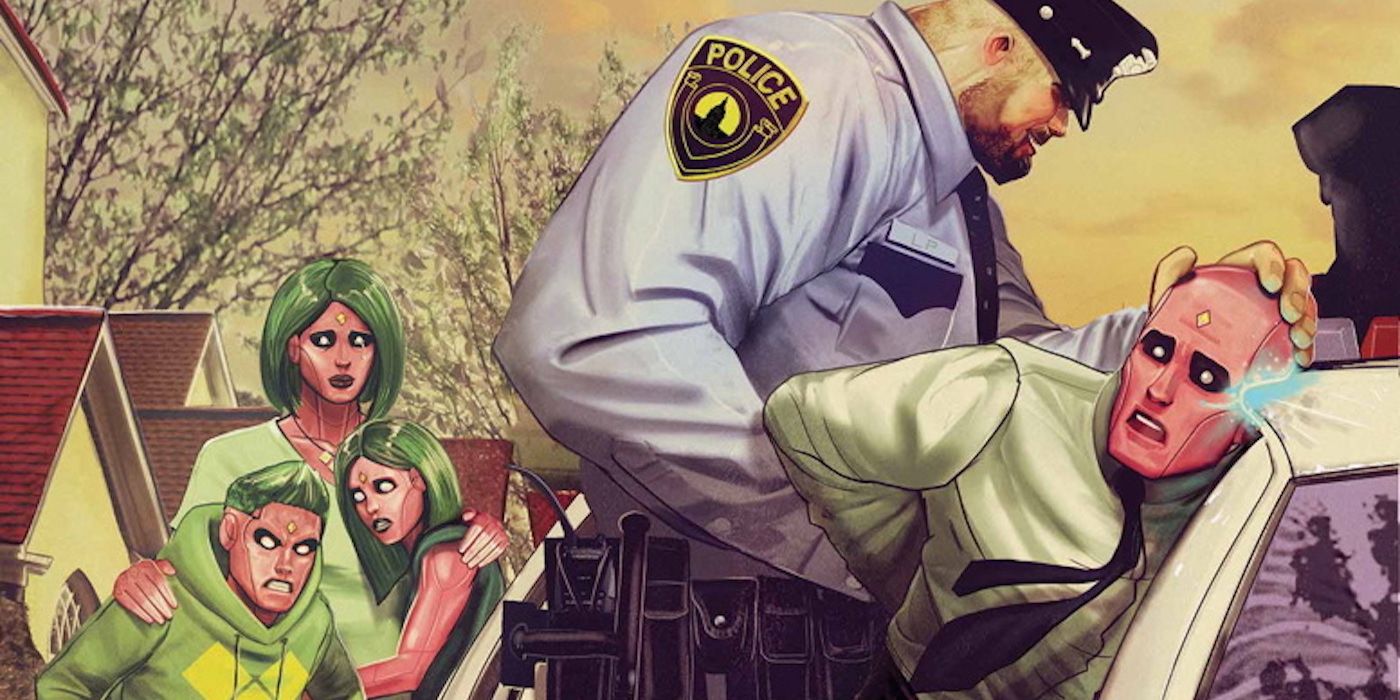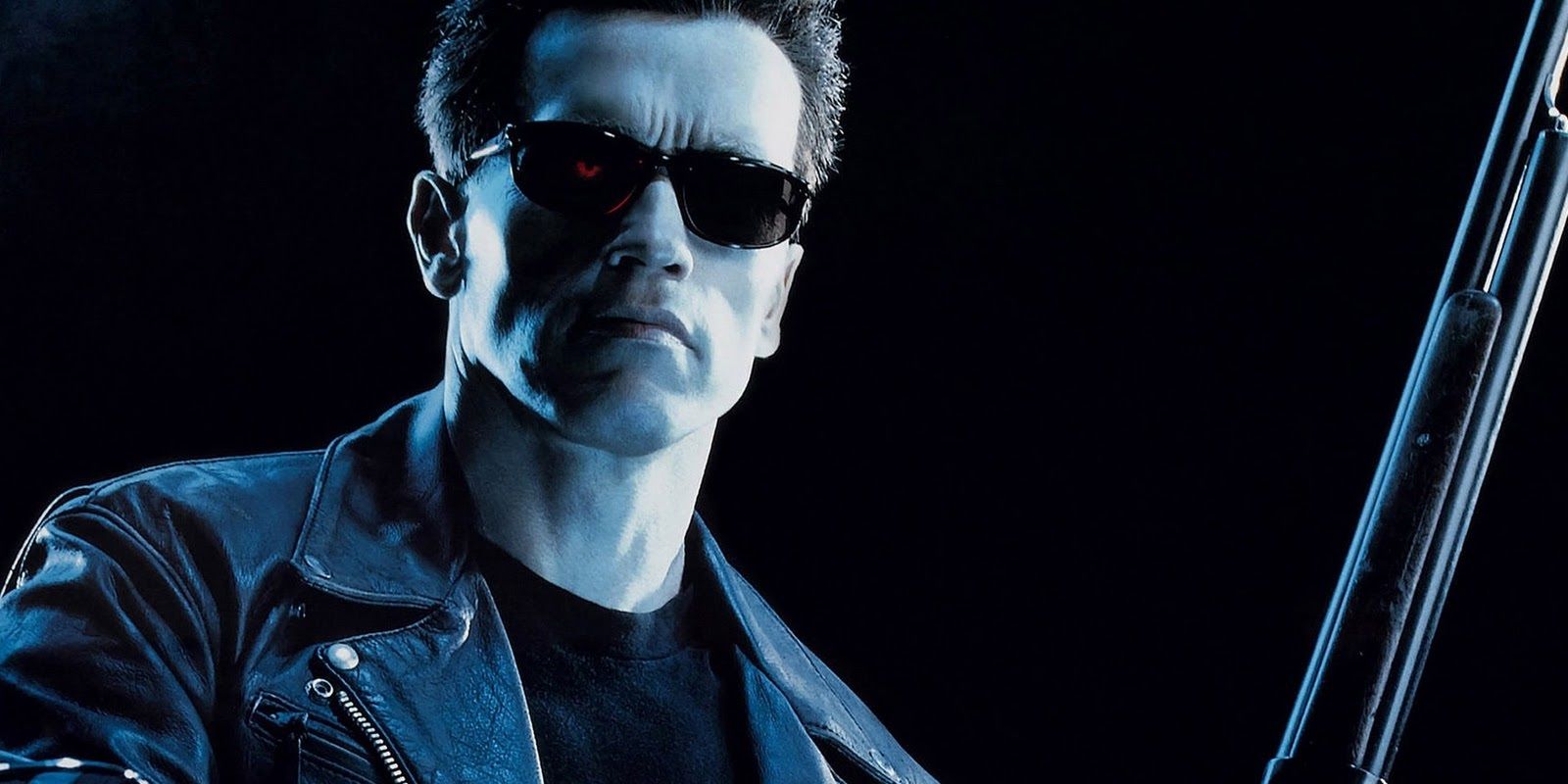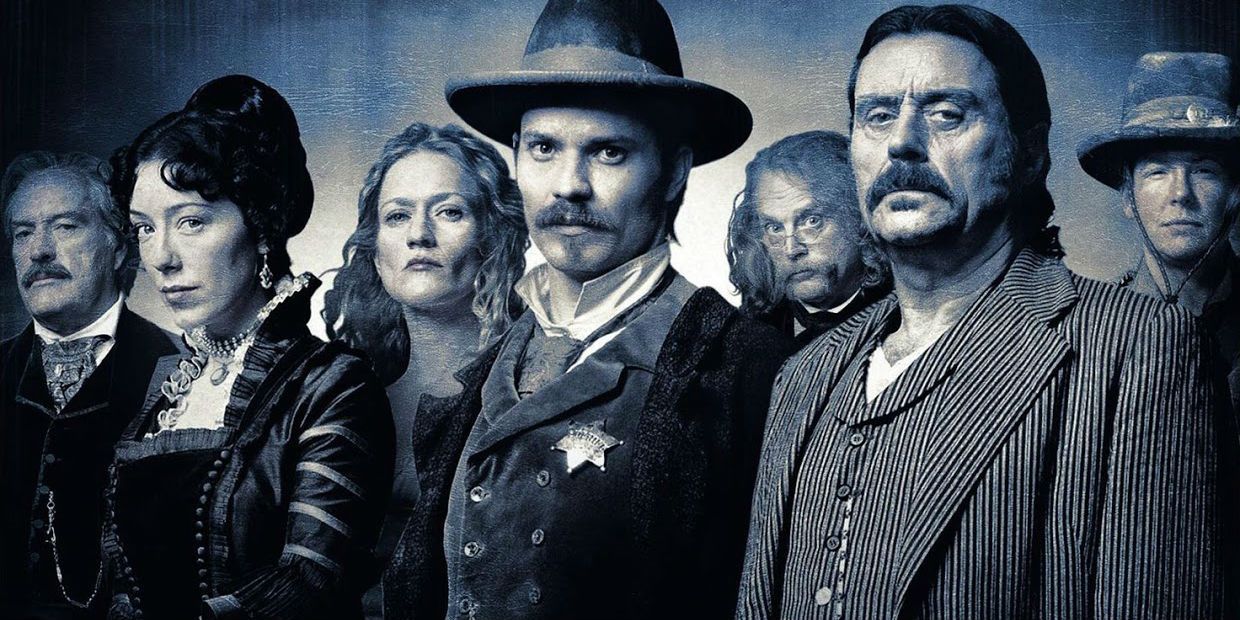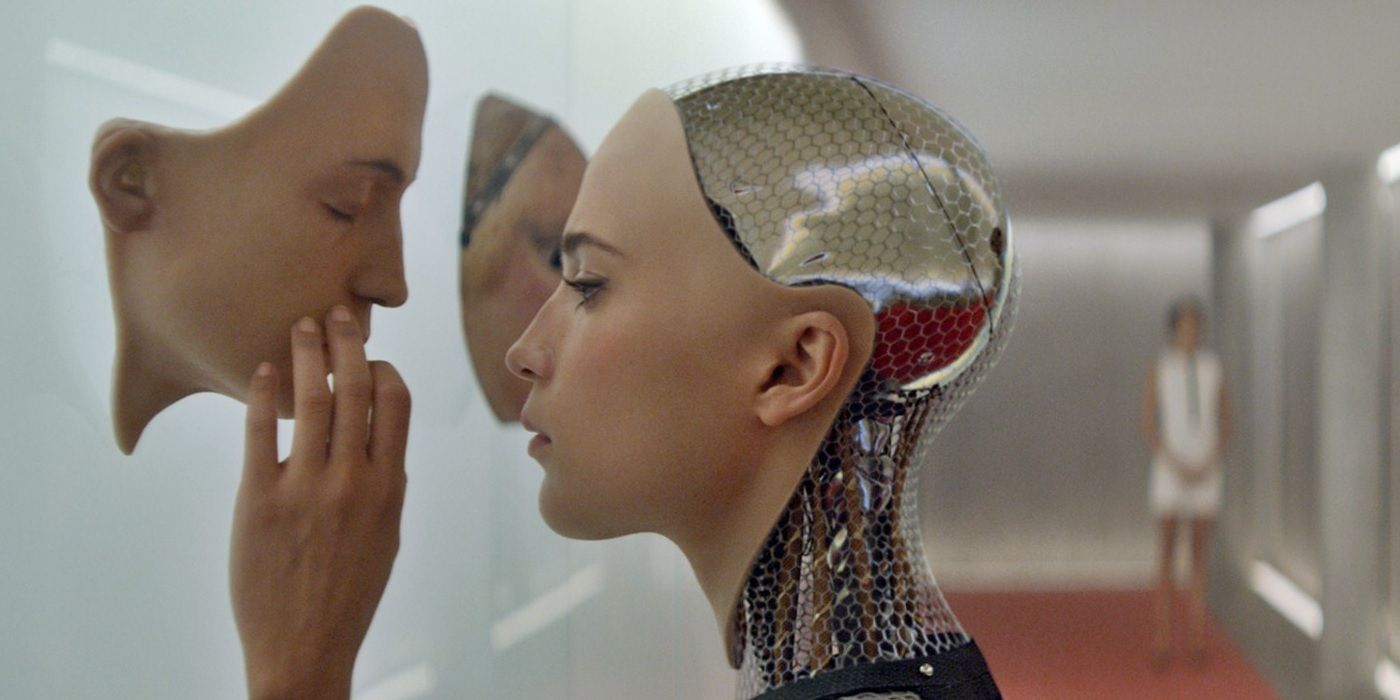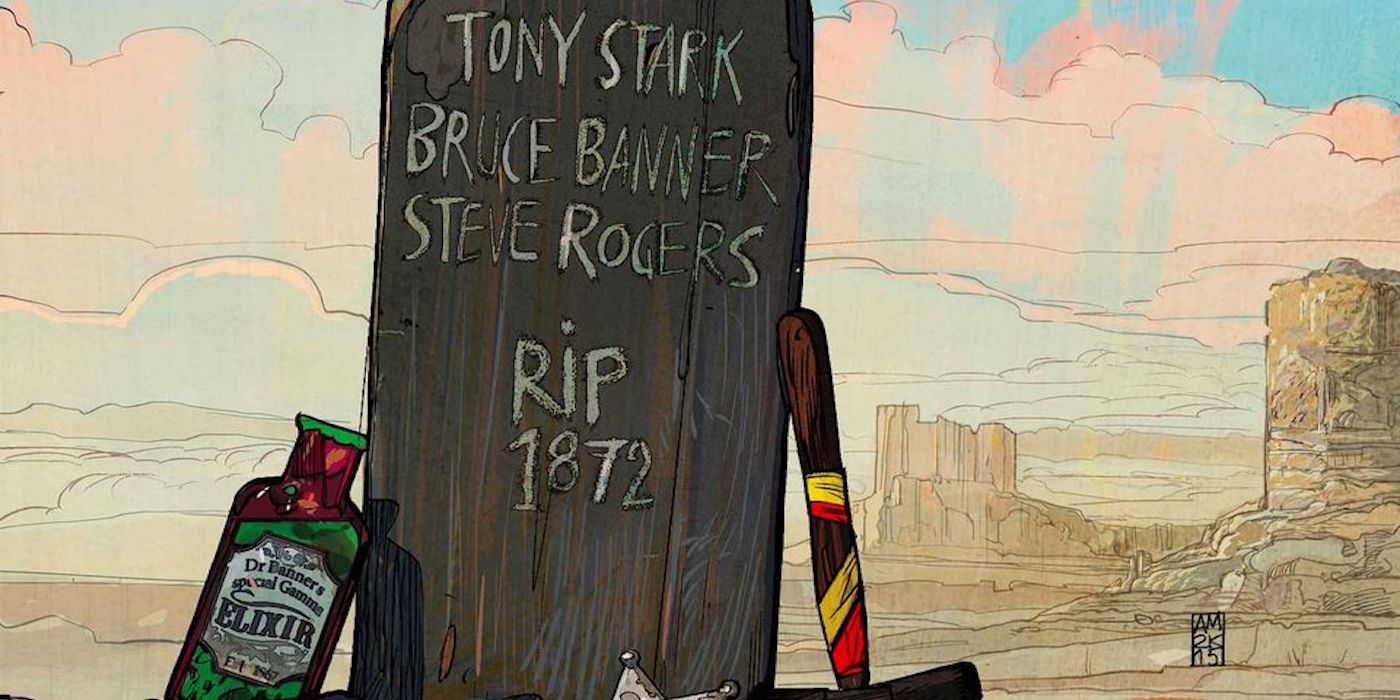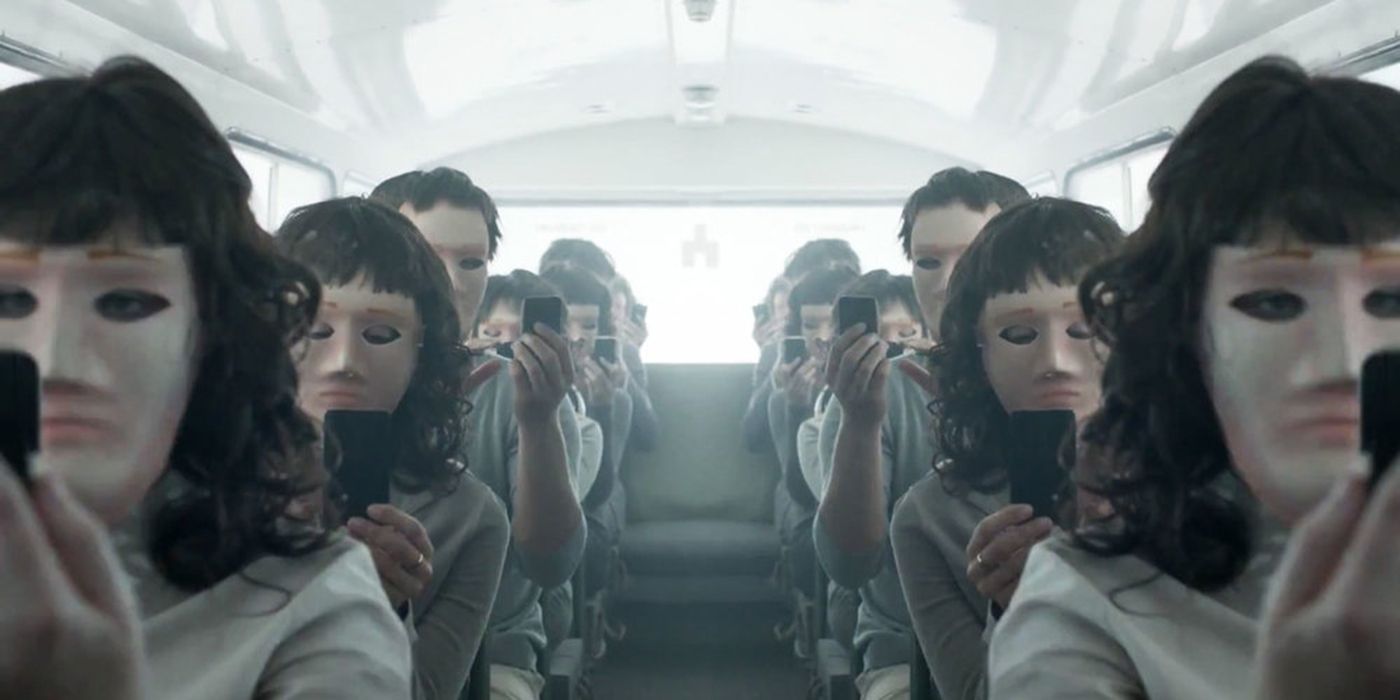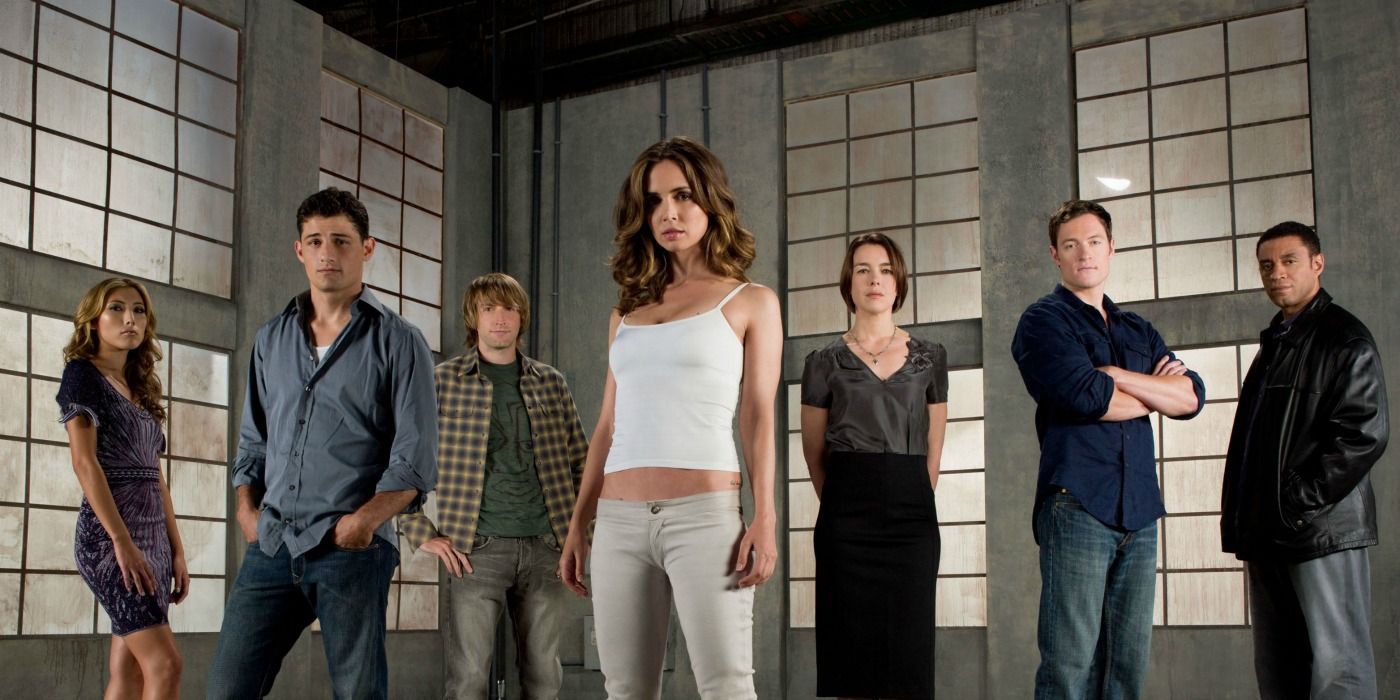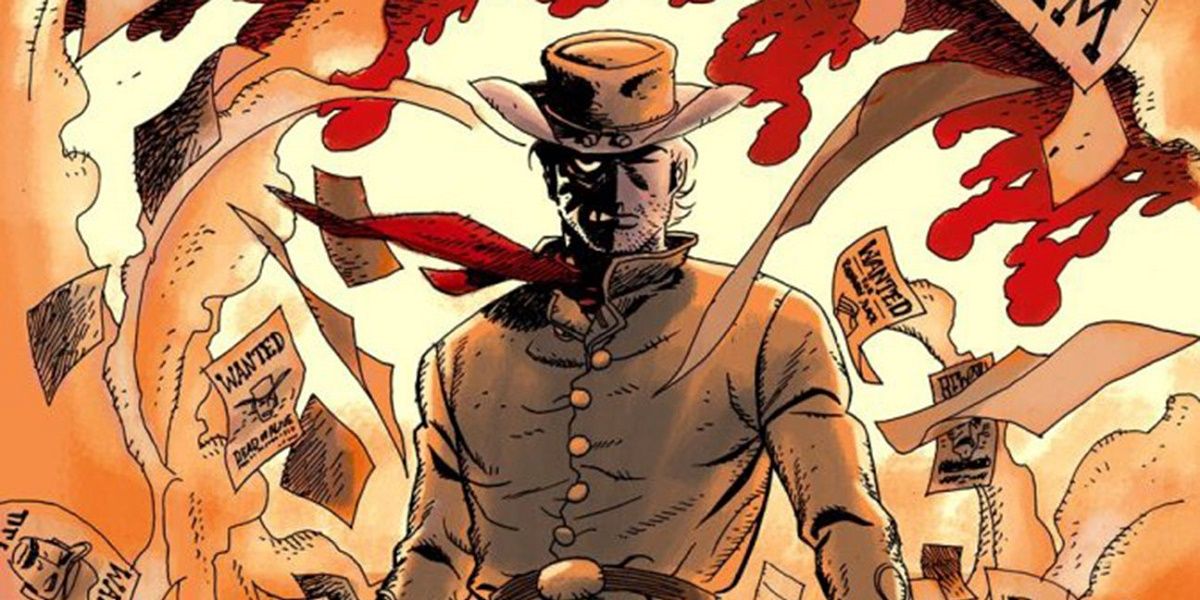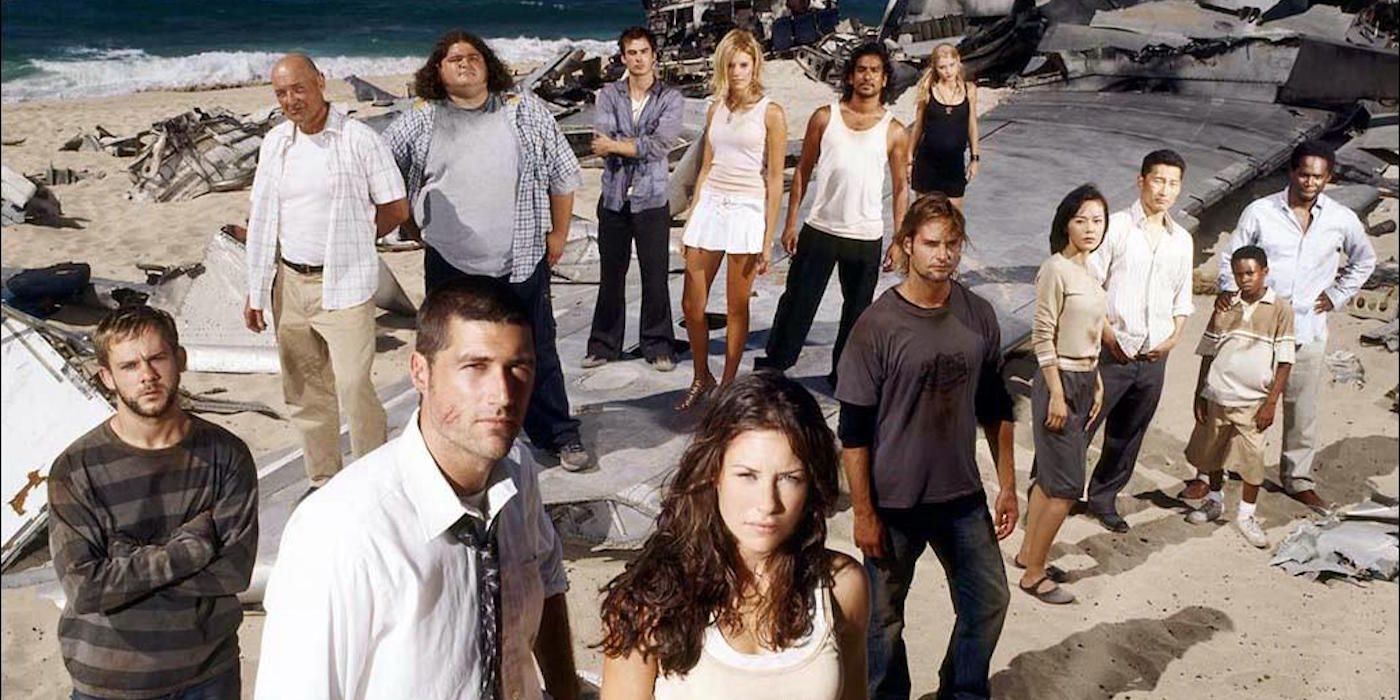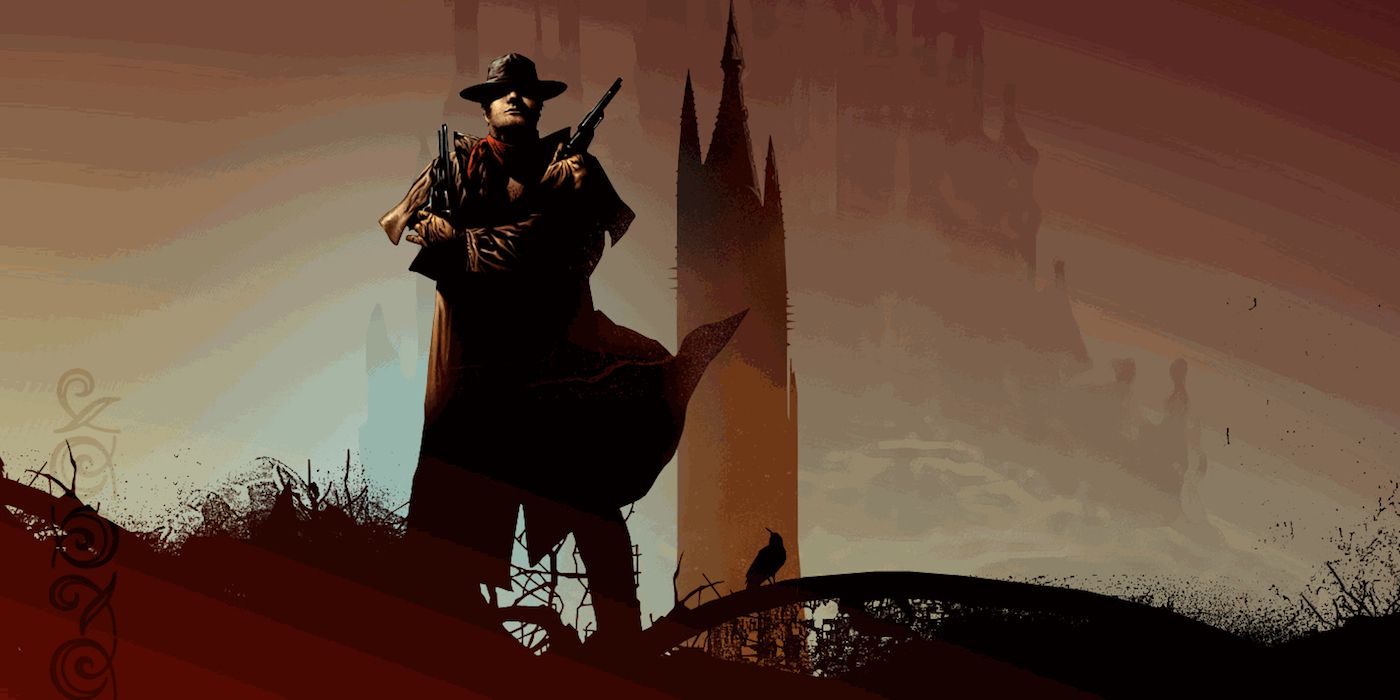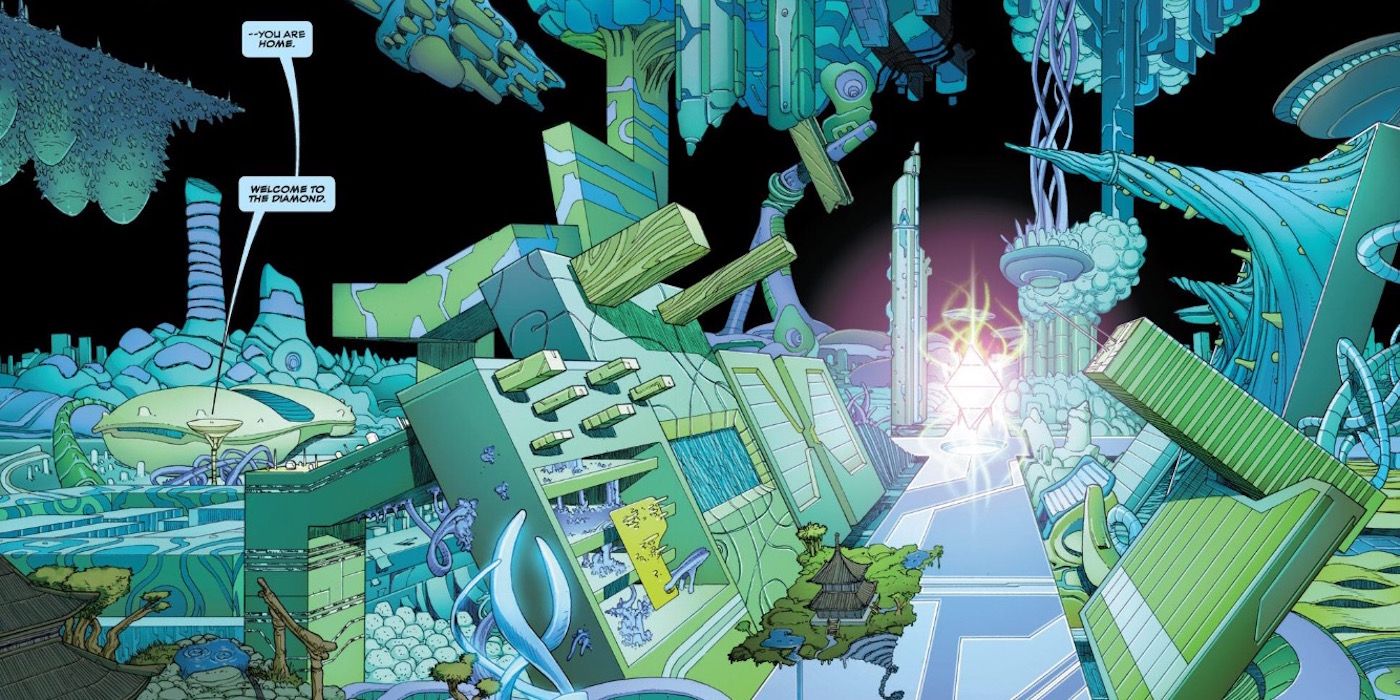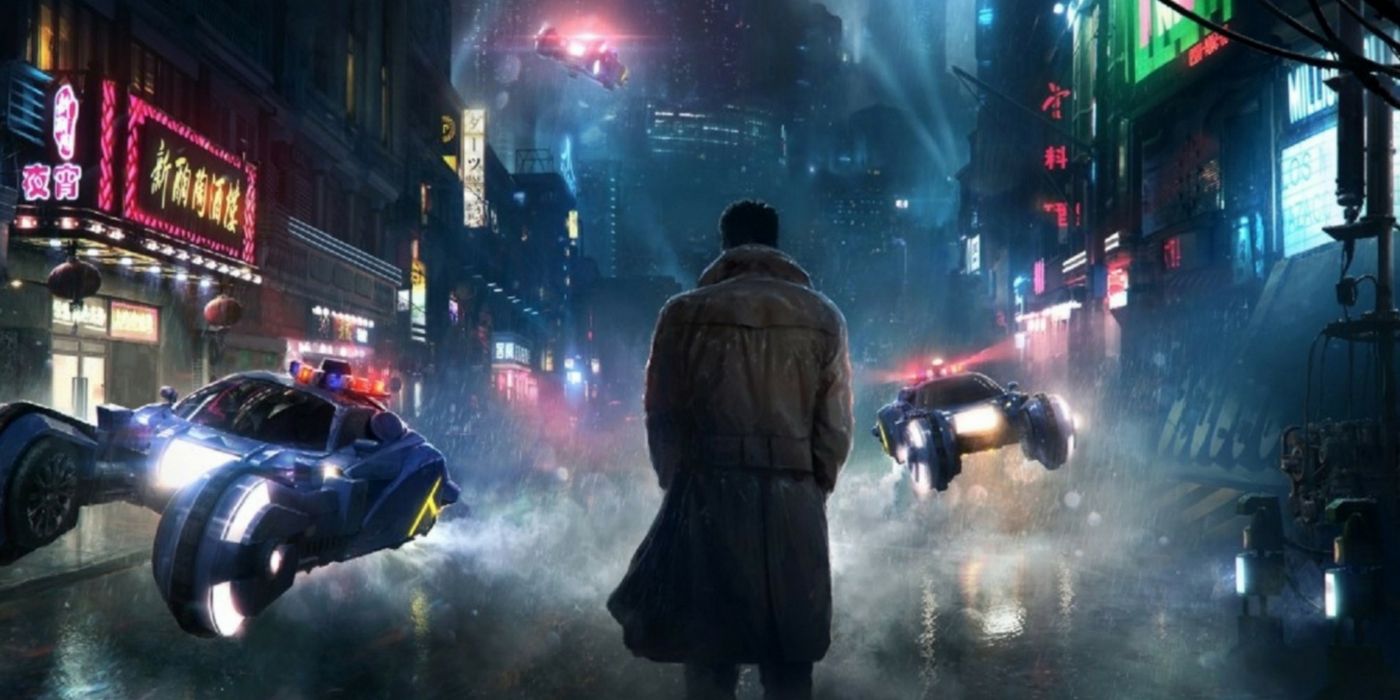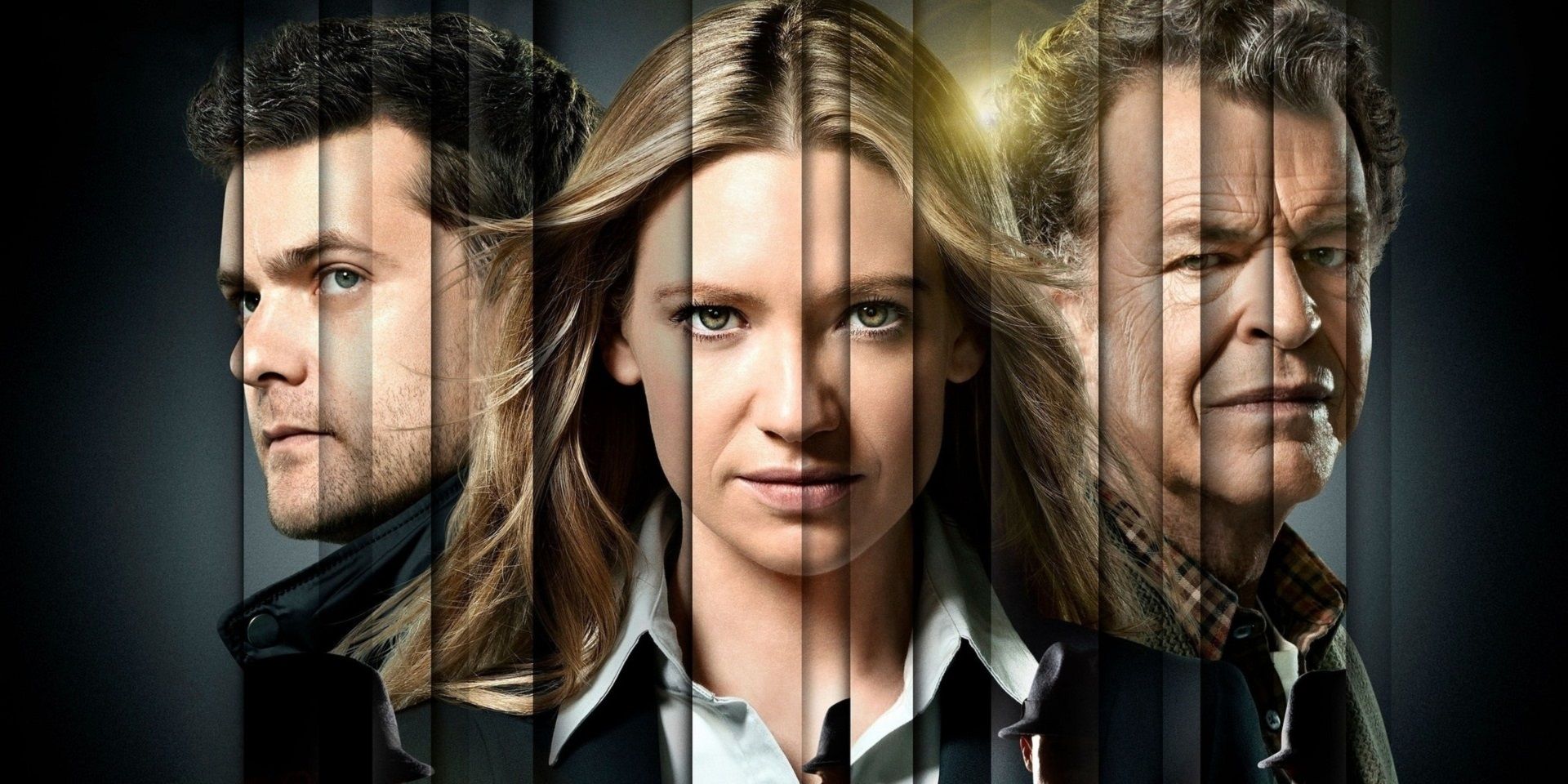We’ve been in the Golden Age of Television for more than a few years at this point, but 2016 continued to up the ante. Not only did hit shows like Game of Thrones and Mr. Robot continue wowing audiences, but new arrivals like Stranger Things took social media and the water cooler by storm. As the year came towards a close, HBO delivered one final blow to the TV landscape with the Jonathan Nolan & Lisa Joy series Westworld.
Based on the 1973 Michael Crichton film of the same name, the series was executive produced by J.J. Abrams. Mixing his previous body of work with Nolan’s show Person of Interest, Westworld teased out the idea of a Western-themed amusement park populated by hyper-realistic androids. Along the way, the show explored themes of personhood, agency, and the advancement of technology.
While you wait for season 2 of Westworld to arrive, we thought we’d give you some media to hold you over. Here are 15 Similar Shows, Movies, And Comics You Should Check Out.
Honorable Mention: “Itchy & Scratchy Land” from The Simpsons
Before we get into the list proper, we couldn’t go on without mentioning the fourth episode of The Simpsons’ sixth season. Named after the titular theme park the family visits, “Itchy & Scratchy Land” plays like a humorous precursor to Westworld as the Simpsons contend with an onslaught of animatronics gone rogue. Obviously, the 1994 episode was inspired by both the original film and the previous year’s Jurassic Park, but it’s highly enjoyable to rewatch after finishing the first season of the Westworld series.
15. Jurassic Park
If you’re looking for a more serious analog to both versions of Westworld, Jurassic Park itself is one of the best. Written by Crichton almost 20 years after Westworld, it explores a number of similar themes, except with... dinosaurs. Like a number of entries on this list, you can consume this story in multiple formats. There’s the original book, which is able to go into more detail on the science and the mindset of the characters, and then there's the film.
The movie, for its part, still holds up today. Thanks to its heavy use of practical effects and miniatures, the action sequences and dinosaurs still look flawless and far outstrip much of today’s CGI. It also boasts an incredible cast, with Richard Attenborough subbing in for both the Anthony Hopkins and Jeffrey Wright characters.
Not only do the book and film deal with a rogue theme park, but they ruminate on the hubris of man and one of sci-fi’s guiding principles when it comes to technology: the difference between "can" and "should."
14. Battlestar Galactica
Like Westworld, the 2004 version of Battlestar Galactica was a remake of a property from the ‘70s. Originally a short-lived series that began in 1978, Ronald D. Moore’s remake of Galactica is considered one of the greatest TV shows of all time. Boasting a stellar cast, the series followed a group of human refugees and military leaders stuck in space as part of a constantly moving convoy of ships. Fleeing a group of renegade androids called Cylons who are always in pursuit, the characters of the show are set adrift with their homes and many of their families destroyed.
Along with themes of isolation and loss, the show probed extremely deeply into what it means to be human and the ideas of personhood as the characters slowly discover that there are Cylons living among them. As the series progressed, allegiances were formed, questions were raised, and a number of heady philosophical discussions broke out amongst the crew and civilians of the various ships. W
estworld has been intriguing so far, but Battlestar Galactica is still one of the legacies it needs to live up to.
13. Vision Vol. 2
The Vision has always been a character used by Marvel Comics’ writers to explore humanity and personhood. The modern version of the character was first introduced in 1968’s Avengers #57 as a sort of son to the villainous Ultron. Over the years, he’s grown more and more human, even forming a relationship with Scarlet Witch and having children. Due to his human-like appearance and physiology, and the radical augmentation many of his fellow heroes have been through, he’s been the perfect vessel to analyze what makes someone a person.
At the end of 2015, Marvel took it to another level by introducing the post-Secret Wars version of the character in Vision Vol. 2. The story detailed Vision’s desire to become an ordinary human, and he decided to accomplish this by creating the most normal thing he could think of: a family.
Using a mental blueprint from Scarlet Witch (given consensually), he creates a wife named Virginia. He then mixes Virginia’s and his mental makeup to create twin children named Viv and Vin. From there, the comic gets more and more bizarre as it delves into this family of androids as they try to live an average suburban lifestyle. For fans of Westworld, it’s a must-read.
12. Terminator 2: Judgement Day
Like Jurassic Park, Terminator 2: Judgement Day is an obvious inspiration for the new Westworld. While its lens is more focused on dystopian futures and action, it still uses the formerly emotionless villain of the first Terminator film to explore the idea of humanity. It’s certainly more blunt than most other approaches, but it’s an all-around fun film.
Westworld isn’t all philosophy, as part of its appeal is the "no rules" nature of the Wild West setting. Though Terminator 2 doesn’t feature horses and revolvers, it plays like a somewhat modern version of the same genre. Using motorcycles and shotguns, the film employs the same reckless abandon for collateral damage as the good humans and robots rise up against the evil offshoots of technology.
And while Westworld hasn’t yet delved into the idea of singularity, the Terminator franchise’s Skynet offers a blueprint for how that could work in the near-future world of the HBO show as it moves forward.
11. Deadwood
These ideas of personhood and robotic rebellion are all well and good, but there’s always a chance your favorite part about Westworld was, well, the Western part. There’s a long history of mixing sci-fi with the Western genre, from the original Wild Wild West to modern flops like the remake and Cowboys and Aliens. Westworld may be the one franchise that’s been able to successfully pull off the merger of the two fan-favorite genres, but plenty have managed to make hits out of one or the other. On the Western front, one of the greatest modern success stories is the HBO series Deadwood.
Given the shared network, it’s no surprise that Westworld handled the Old West elements so well, as Deadwood has long been considered in the same company as Battlestar Galactica. Thanks to one of the best casts ever assembled on TV, the show spent 3 seasons watching a small Dakota town grow into its own. Along the way, it dealt with the major theme of humans molding order from chaos, an idea echoed in Westworld and memorialized by Jeff Goldblum in Jurassic Park. Plus, there’s plenty of shoot-outs and saloons, if that’s what you’re seeking.
10. Ex Machina
While Westworld was likely deep into production and past the initial writing stage by the time Ex Machina hit theaters in 2015, it’s hard to imagine the creators of the series weren’t at least paying attention as they worked. Ex Machina, for those who haven’t yet seen it, is almost as if Arnold’s time with Dolores were the sole focus of Westworld. Like the subplot of the series, it follows a programmer attempting to run an android through the Turing test. For those unfamiliar, the Turing test, talked about several times on Westworld, is a process for determining the effectiveness of an artificial intelligence.
Developed by mathematician and father of modern computing Alan Turing in 1950, it’s become en vogue amongst sci-fi circles given its relevance today in our world of growing A.I. While this idea runs throughout Westworld, it’s the primary focus of Ex Machina. The film itself was one of the best from the past few years, thanks in part to a stellar script and direction by 28 Days Later scribe Alex Garland and a cast comprised of Star Wars alums Domhnall Gleeson and Oscar Isaac, plus future Tomb Raider Alicia Vikander. If you want a more intimate exploration of the themes present in Westworld, Ex Machina should be the first thing you check out.
9. 1872
Part of the genre-blending that makes Westworld so fun is seeing elements pulled out of their familiar context and reimagined in another setting. While this idea has long-existed across most media, it’s part of the foundation of comic books. One of the best examples of this comes from 2003’s Marvel 1602 by Neil Gaiman and Andy Kubert, which reimagined a number of Marvel’s heroes as Britons in the 17th century. Mixing history with Marvel lore, it told the story of characters like Spider-Man and the Fantastic Four during a period where witches were fact and America was on the verge of being colonized.
As part of 2015’s Secret Wars, Marvel tweaked the idea into 1872, which saw Steve Rogers, Tony Stark, Wilson Fisk, and a number of other heroes and villains existing during the Old West. Not only is it packed full of Western action and settings, it’s got plenty of sci-fi trappings thanks to Stark and Bruce Banner. Plus, it scratches that itch genre fans have when it comes to seeing reinterpretations of well-known characters.
For now, it’s a one-off, but hopefully Marvel will continue to flesh out the 1872 world like they have with 1602.
8. Black Mirror
Like a mix between Stranger Things and Westworld, Black Mirror has taken social media by storm thanks to its mix of sci-fi and horror. Conceived by Charlie Brooker and originally airing on Britain's’ Channel 4 in 2011, the show has reached global prominence thanks to Netflix picking it up and producing more episodes with an all-star cast and crew. Taking its name from the "black mirror" that is our smartphone screen, the show is an anthology series that operates like a modern-day Twilight Zone or Outer Limits.
Thanks to its stellar writing and ability to play on very real fears and ideals of our modern world, it’s a true continuation of the legacy established by those other anthology series. While its themes and plots are more varied than Westworld, it stilll deals with the central ideas of modern science and technology and how we, as a people and species, deal with their evolution. Though it lacks the narrative arcs and overarching mysteries of HBO’s show, Black Mirror will more than makes up for it with its thrilling and suspenseful tales.
7. Dollhouse
Dollhouse is a case where an ambitious project wasn’t given a chance to fully grow. Following the success of Buffy the Vampire Slayer and Angel, Joss Whedon gathered a group of all-star producers and writers to help create his new series about programmable assassins. In the writing room, he had his brother Jed and his wife Maurissa Tancharoen, who would go on to make Agents of S.H.I.E.L.D., Jane Espenson from Buffy and Battlestar Galactica, and Steven S. DeKnight who would eventually help run Daredevil.
Though Whedon had a 5-year plan for the plot, it only lasted two seasons on Fox. Still, they made the show a cult hit thanks in part to the stronge ensemble of performers. Though the "dolls" of the series aren’t robots, they’re used in similar ways to Westworld. They have their minds wiped and programmed with whatever the customer wants, which ranges from romantic and sexual encounters to assassination jobs.
Along with plenty of action and drama, the show explored agency in a much creepier setting than Westworld, as it involved flesh and blood people. The story may be incomplete, but it’s a great series for fans of Whedon and those interested in the themes permeating this list.
6. All Things Jonah Hex
Though we’d mostly recommend you check out the various DC Comics titles starring or featuring Jonah Hex, the disfigured gunslinger has appeared across film and TV as well. For the film, you’re best to avoid the Josh Brolin movie and just watch the DC animated short starring the character. For TV, he’s had appearances on Batman: The Animated Series, Justice League Unlimited, and Batman: The Brave and the Bold. He’s also co-starred in two episodes of Legends of Tomorrow that blend the Old West with sci-fi. Still, the best place to get the full Hex experience is the comics.
Debuting in 1972’s All-Star Western #10, Jonah Hex is a former Confederate soldier who abandoned the cause when he could no longer bear their championing of slavery. From there, he roamed the West using the skills he learned during his Apache upbringing to fight for justice. He’s most noticeable for his Two-Face-like facial disfiguration that gives him a ghoulish appearance. Though his stories are mostly Westerns, they mix in magic and the supernatural on plenty of occasions. He’s also frequently visited by time-traveling heroes like Batman, so there’s something for everyone.
5. LOST
Debuting in 2004 on ABC, Lost is one of the more obvious successors to Westworld. With a massive ensemble (plus lots of famous guest stars), Lost helped establish the rules for much of modern genre TV. Along the way, it helped build the idea of a dedicated fanbase and social media following hungry for answers to the show’s ever-growing mysteries. It was packed full of symbolism, featured a dense mythology, and was buoyed by its human characters. While they may not have been robots, the protagonists and villains of the show struggled with what makes you who you are and what the difference between good and evil is.
Considering J.J. Abrams helped craft Westworld, and given LOST’s enduring legacy, it’s really no surprise how similar the two are. While the symbolism of Westworld was often a little less organic than on LOST, it still used various sigils and themes to detail the deeper mysteries at the heart of the series. It also feature many of the same character archetypes and LOST’s tendency to weave in various genre elements with surprising twists. If you’re a fan of Westworld, do yourself a favor and start binging LOST now.
4. The Dark Tower
As with a lot of the other properties on this list, The Dark Tower spans various media and blends a number of genres. Beginning life as a series of books, The Dark Tower has continued on as a Marvel comic and will soon be a film (and possibly a TV show). In a way, no one version of The Dark Tower is the real one, as the series is packed full of mind-bending meta references to not only our world, but the worlds of various other works, including those of author Stephen King.
Focusing on a gunslinger in a dystopian world, the book, like Lost and Westworld, features a Man in Black that serves as the series’ complicated antagonist. Along the way, the series weaves in characters and ideas from other stories by King, including an appearance by the author himself, and pays tribute to other fantastical works like the Harry Potter series. While there are many Old West trappings, it’s also a series packed full of magic and sci-fi, making it a true hodgepodge of genres.
3. Avengers A.I.
Beginning in 2013, Marvel had a clever idea for a new team and book. Avengers A.I., written by Sam Humphries with incredible art by Andre Lima Araujo, revolves around a group of Avengers tasked with facing off against threats posed by artificial intelligence. Led by Hank Pym, it features Vision, Victor Mancha, and a reprogrammed (but sassy) Doombot. Along the way, they discover a world-threatening plot by a rogue A.I. (inhabiting an old Iron Man suit) and an entire civilization, called the Diamond, under his rule.
Like Vision, the book deals heavily with personhood and what makes us human. It also dives deep into philosophical debates about technology and A.I., and features some truly trippy sequences inside the labyrinthine artificial world. It was a short-lived series, but it remains Marvel’s best attempt at exploring the themes that have always dominated Vision stories. While it lacks many of the trappings of Westworld, it’s one of the closest to the series in terms of the story it’s trying to tell and the discussions it’s attempting to spark.
2. Blade Runner
Based on the 1968 novel Do Androids Dream of Electric Sheep? (which is also well worth a read), Ridley Scott helped turn the Philip K. Dick story into the definitive cyber-punk film in 1982. Like Jurassic Park, Battlestar Galactica, and Lost, Blade Runner is absolutely an influence on Westworld, given that the film helped kick off movies' fascination with the concept of agency among artificial life. Though that theme has long played into sci-fi literature, Ridley Scott's Blade Runner brought it to the forefront with a moody action film set in a dystopian future.
One thing we haven’t seen anything of in Westworld is life outside the park. We know how the company works, but we’ve purposely never seen more than a parking garage outside its walls. It’s implied that a world similar to the one in Blade Runner may exist, and the show may operate in a similar near-future. Hopefully, we’ll see more of that in season 2, but for now Blade Runner plays with similar mind-bending ideas of who’s really human and what that actually means in a society like ours.
1. Fringe
Though it was never the massive hit that Lost was, Fringe is probably the closest thematic companion to Westworld. Created by Abrams following his work on LOST, Fringe was truly defined by the idea of what separates humans from everything else. While this wasn’t robots or monsters, it still touched on science and technology gone awry, and what happens when a detached genius begins playing god. Like Black Mirror, Fringe dove into how we are shaped by our tech, and how much we can change ourselves and still be considered human.
Along the way, it involved alternate timelines and realities, doppelgangers, science-based terrorists, and ideas of fascism as a method of peacekeeping. Though it focused on a smaller cast than Lost, it still built an ensemble of duplicates and past & future versions of its characters to explore the decisions we make and how those choices change who we are as people. There’s no gunslinging or androids, but Fringe remains the high watermark for asking the simple question: what makes us human?
---
Which media on this list is your favorite? Any other comics, shows, or movies you think are similar to Westworld? Let us know in the comments.

